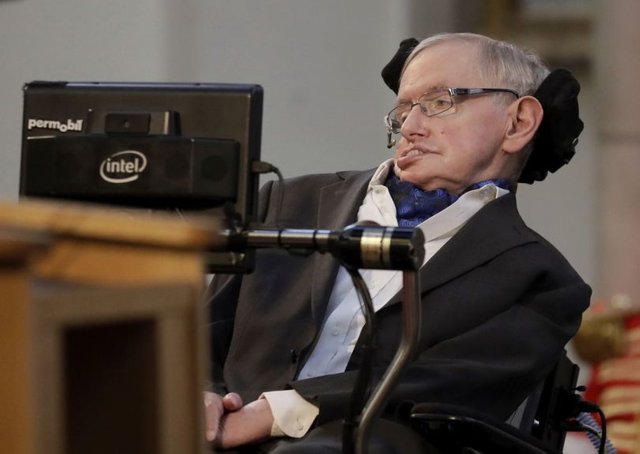Famous world scientist Stephen Hawking died

Already during the studies at Oxford University, doctors diagnosed amyotrophic lateral sclerosis (ALS).
Leading British theoretical physicist Stephen Hawking, one of the world's most respected scientists, died in the middle of a 76-year-old gang. Professor was quiet during sleep at home in the English city of Cambridge. The family spokesman confirmed the death.
The renowned scientist, despite severe disability, was among the most influential thinkers of the present.
They wanted a doctor from him
Stephen Hawking was born on January 8, 1942, in the University of Oxford, United Kingdom. Accidentally, exactly 300 years since the death of Italian physicist and astronomer Galileo Galilei. After his birth, his sisters Mary and Philip arrived in the world.
Hawking's parents, father of a tropical illness doctor, and a left-wing activist mother, moved to Oxford from London just before he was born to avoid the bombing of the city during the Second World War. In 1950, they moved to St. Augustine. Albans, where Hawking attended elementary and secondary school.
His father's wish was to study medicine, but young Stephen Hawking was more interested in physics, mathematics, and chemistry. Prior to graduation, he enrolled at the Oxford University, where he obtained a bachelor's degree in 1962. In 1963, he went to study at Cambridge University, where he defended his doctoral degree in cosmology in 1966.
Already during his studies at Oxford University, his doctors diagnosed amyotrophic lateral sclerosis (ALS) in 1962, a degenerative motor neuron disease with which patients live for an average of two to three years. In 2011, Hawking said he was 49 years old with the vision of death. He gradually paralyzed the whole body and lost his voice. He used an electronic voice synthesizer for communication. The computer system connected to his wheelchair was controlled by a single switch and software called Equalizer and EZKeys, which allowed him to talk, lecture, read the press or books, and browse the internet and write emails.
Nor did the disease, which surprisingly progressed so fast, prevented him from making significant scientific discoveries. In 1971 he mathematically proved the Big Bang theory, which explains the origin of the universe. It was based on the general theory of relativity, according to which the universe had to be a starting point in the time-space.
According to Hawking, after the Great Cod, the initial black holes were created. In 1974, he calculated that black holes heat and emit subatomic particles until they exhaust their energy and explode. This fact, known as Hawking's radiation, for the first time mathematically combines gravity, quantum mechanics and thermodynamics.
In 1981, Hawking declared that the universe, although it had no boundary, was the final one, which he had mathematically demonstrated in 1983.
I keep approaching ordinary people
His discoveries were understandable only for a group of scientific colleagues. The world's most popular book was Brief History of Time (1988). He wrote it in a style that he gained as a layman throughout the world. The book has become a worldwide hit. Ten million pieces were sold.
His other publications, such as The Universe in the Nutcracker (2001) and The Still Brief History of Time (2005), are also known worldwide.
Hawking was also known as a great agnostic about God or the afterlife. For the British Guardian, he said the human brain is like a computer, and there is no life or life for broken computers. Life after death, according to the world's scientist, is just a fairy tale for people who are struggling with uncertainty.
A charismatic scientist who held the position of the so-called Lucasian mathematics professor at Cambridge University from 1979 to 2009 (formerly Isaac Newton) was twice divorced and three children remained after him.
In 2014, British director James Marsh made Hawking's Theory of Everything, in which the actor Eddie Redmayne presented the film.